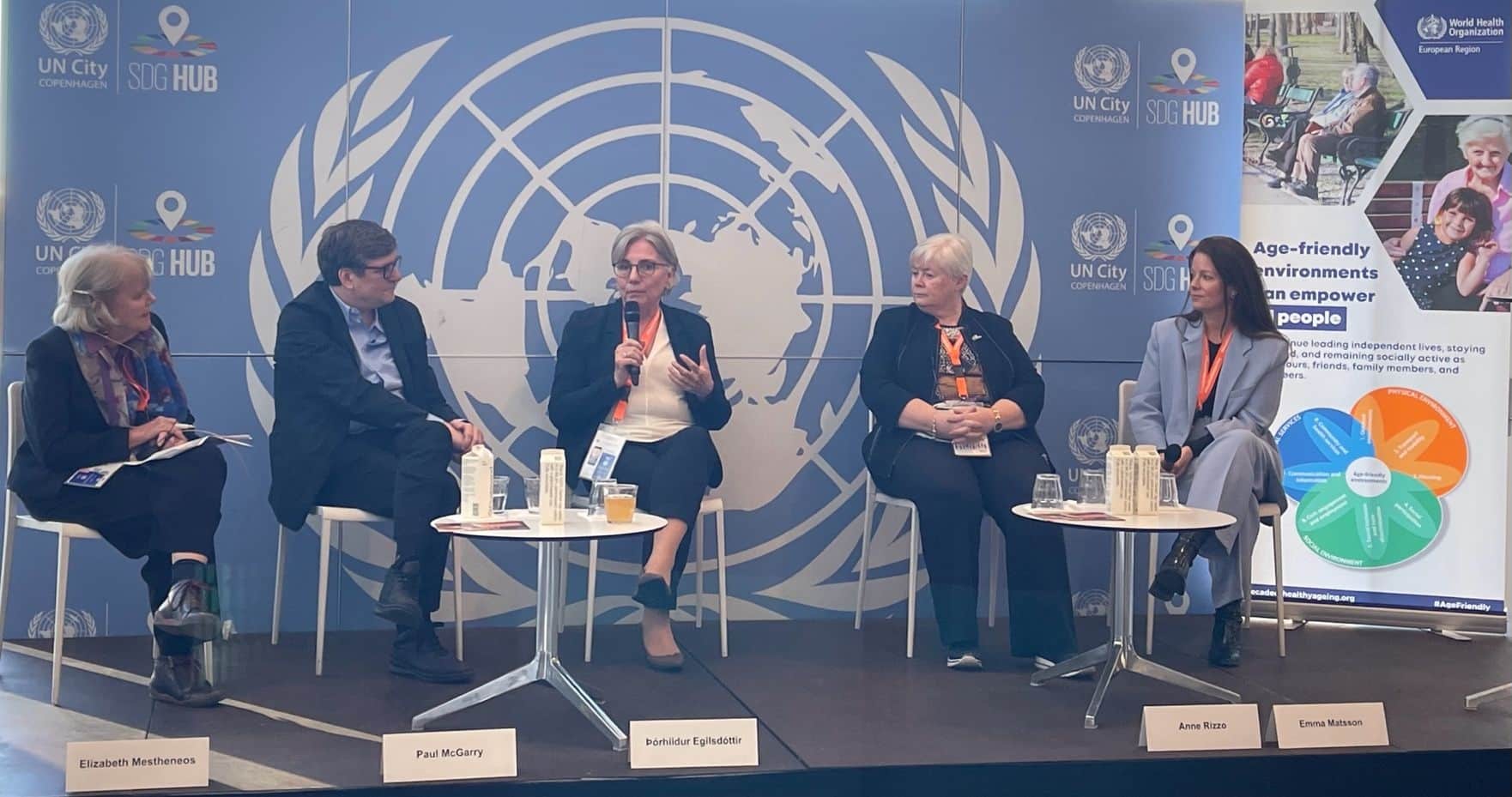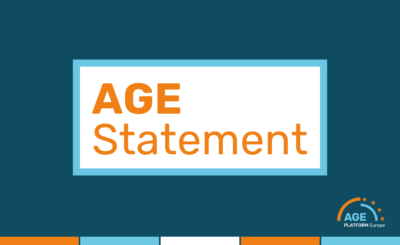
How can a well-being economy approach create healthy, fairer and more resilient societies for today and the next generation? This was the question discussed at a high-level forum of the World Health Organization (WHO) on 1-2 March. Dr. Liz Mestheneos from our Greek member 50+ Hellas moderated a panel discussion which explored the complexity of promoting well-being and health over the life course.
The WHO’s conference brought together a variety of experts, mainly from the health sector, to examine how we measure well-being using examples from Northern Europe.
Though the Gross Domestic Product (GDP) is used by economists, this does not capture the essence of health, social and planetary well-being for humans. Public policy can help lead our societies into actions that are not limited to economic growth but are firmly focused on improving health and well-being. After the economic crises, the Covid-19 pandemic, and the war in Ukraine and its energy consequences, we all understand that so many people in our society are in situations of vulnerability. The WHO Europe Region (53 countries) constantly tries to make governments aware that health is of enormous concern to their economies, with the need to fund activities to promote health and well-being policies.

Here are some of the conclusions that came out of the discussions:
- We need to change the mindset for seeing older population from deficit to asset
- Age-friendly model provides an effective way to work across sectors to achieve wellbeing
- ‘Nothing about us without us’ : always involve older persons including future generations of older people
- Leadership is the key
- We need more platform (in-person and virtual) to learn from each other.






